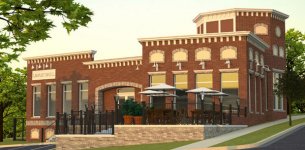Carlsen Highway
Well-known
I sell magazine articles on the side, mostly outdoors magazines, but also the occassional general feature sort of thing.
I dont make enough money at it to survive, so it's a hobby I enjoy and it pays for itself easily.
I cant sell articles without being able to provide pictures, but I really started out with photography in my teens wanting to sell pictures to the papers. I soon found I could sell pictures easier if I could write as well....
...training? You know, I would go and study art history. The relevant technical side of photography can be learnt in a very short time, but if you want to know about pictures, go and study the Masters...Delacroix, Rubens, Davide, Carravagio, Raphael....
I dont make enough money at it to survive, so it's a hobby I enjoy and it pays for itself easily.
I cant sell articles without being able to provide pictures, but I really started out with photography in my teens wanting to sell pictures to the papers. I soon found I could sell pictures easier if I could write as well....
...training? You know, I would go and study art history. The relevant technical side of photography can be learnt in a very short time, but if you want to know about pictures, go and study the Masters...Delacroix, Rubens, Davide, Carravagio, Raphael....


